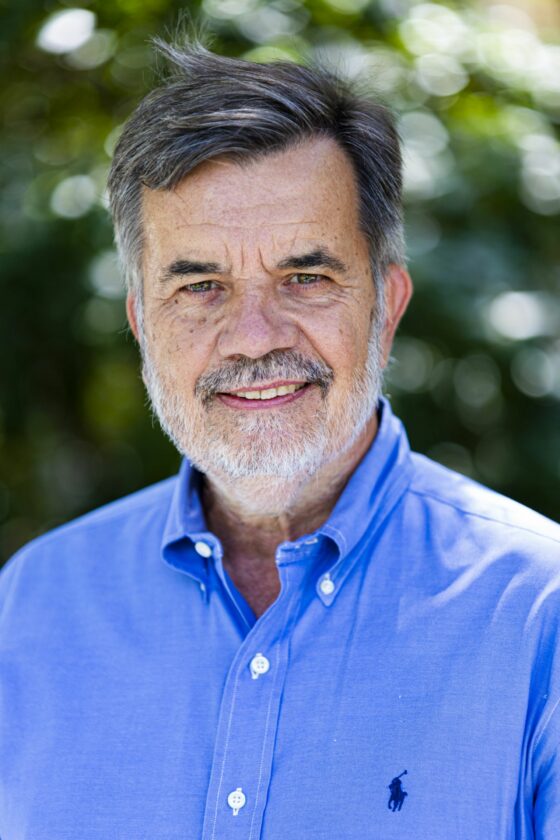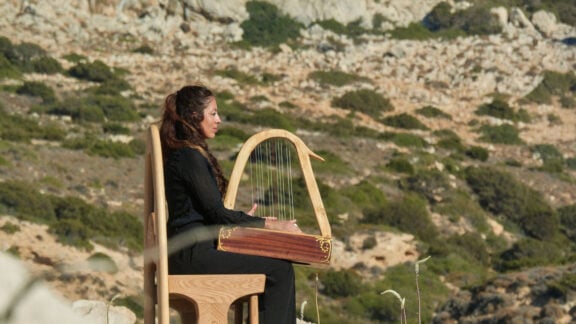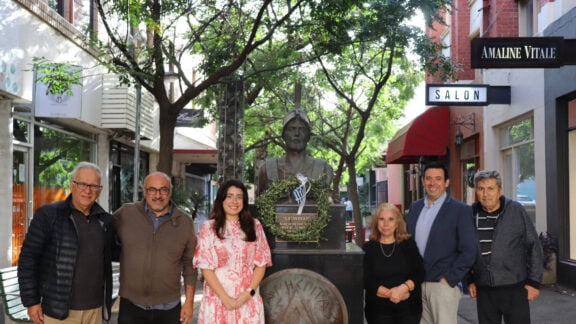Much of what you would need to know about the process of tracing back your Greek ancestry will be covered in the Second Annual International Greek Ancestry Conference held by the United States based online service Greek Ancestry.net.
The two-day conference which begins at 4am Australia Eastern Daylight Time on 30 January to 31 January, is open to all will be accessible through the Greek Ancestry YouTube channel (details at the end of the story) is free of charge and no registration is required to take part.
The conference will open with an interview with Greek-American Nicholas Cage journalist and author of the best-selling autobiographical Eleni. One of the organisers of the conference, Gregory Kontos, will pose questions to Mr Gage including how he dealt with his family’s traumatic history during the Greek civil war, and his views of the Greek-American immigrant experience from the 19th Century to the early 1950s.

The first day of the conference is split into sessions. The first sessions is a focus of Greeks in Foreign Lands and the second sessions is on Greece in the 20th Century.
READ MORE: International online conference focusses on helping you trace your Greek ancestry

Other highlights on Day One of the conference include a discussion with historian Alexander Kitroeff about the Greek diaspora in Egypt.
Conference organiser and contributor Carol Kostakos Petranek said historian Jason Chandrinos would focus on the German Occupation and the Holocaust of Greek Jews.
“The Jewish presence in Greece has been longer and, until the Holocaust, also more diverse than in any other European country. The Holocaust in Greece resulted in one of the highest annhilation percentages in Nazi Europe and witnessed both the destruction of entire communities and at the same time remarkable survival percentages on a local scale,” said Ms Petranek.
Sofia Pitsineli will talk on the testimonies and stories of Greeks who were arrested and executed during the Second World.
Ioannis Michalakos will reflect on daily life in Greece at the start of the 20th Century.
READ MORE: University of Sydney museum needs your help to identify images of a vanished Greece
The third session on the second day of the conference (31 January Australian time) the focus will be on Research Tips and Developments with from various sources including, Greek, Venetian and Ottoman records as well as newspaper archives, using statistics in genealogy research as well as DNA technology for genealogical research.

The final session will focus on the Greek Ancestry’s Village History Projects Initiative aimed at encouraging and supporting people documenting the history of their Greek villages. Ms Petranek said there were 20 projects under the initiative and the Greek Ancestry board selected projects each year which received donations in the form of books, DNA kits and other tools to help with their research.
At the end of the conference Ms Petranek and Georgia Styler Keilman will provide tips on way to share family history with other members of the family and the community.
♦ The conference is free, virtual, and will be live-streamed on the Greek Ancestry YouTube channel. No registration is needed. All sessions will be recorded and available within 24 hours after the presentation, for later viewing on the same YouTube channel.
READ MORE: Sad end for longest-lived warrior of the Greek War of Independence

The full programme of the Second International Greek Ancestry Conference is provided with Australian Eastern Daylight time and Australian Central times.
The two-day event is free, Virtual, Streaming and Archived on the GreekAncestry YouTube site.
DAY ONE: Sunday, January 30, 4am AEDT
Opening Session
An Interview with Author, Nicholas Gage
Sunday – Central 3:30am; AEDT: 4:00am
SESSION 1: GREEKS IN FOREIGN LANDS
Finding Your Ancestor’s Original Surname and Village of Origin (Kostakos-Petranek)
Australia Sunday – Central 4:10am; AEDT 4:40am
The Greek Diaspora in Egypt (Kitroeff)
Australia Sunday – Central 4:30am; Eastern 5:00am
Hellenic Genealogy Geek: New Website & Resources (Stryker-Keilman)
Australia Sunday – Central 5:00am; AEDT 5:30am
SESSION 2: GREECE IN THE 20TH CENTURY
German Occupation in Greece (Chandrinos)
Australia Sunday – Central 5:30am; AEDT 6:00am
Heroes Till the End (Pitsineli)
Australia Sunday – Central 6:00am; Eastern 6:30am
Life in Early 20thC Greece (Michalakakos)
Australia Sunday – 6:15am; Eastern 6:45am
The Eftychia Project (Trotter)
Australia Sunday – 7:00am; Eastern 7:30am
Q&A with Gregory Kontos
Australia Sunday – 7:30am; Eastern 8:00am
…………………………………………………………………………..
DAY 2: Monday, January 31, 4AM-8AM AEDT
SESSION 3: RESEARCH TIPS/DEVELOPMENT
Reconstructing Family History (Kontos)
Australia Monday – Central 3:30am; AEDT 4:00am
Records in Venetian Archives (Santas)
Australia Monday – Central 4:10am; AEDT 4:40am
Hellenic Chronicle (Savage, Pouliopoulos)
Australia Monday – Central 4:30am; AEDT 5:00am
Ottoman Primary Sources (Liakopoulos)
Australia Monday – Central 5:00am; AEDT 5:30am
Statistics Meet Genealogy (Kiritsy)
Australia Monday – Central 5:30am; AEDT 6:00am
DNA on MyHeritage (Horowitz)
Australia Monday – Central 5:45am; AEDT 6:15am
SESSION 4: VILLAGE HISTORY PROJECTS
Peplos History/Genealogy (Papachristou)
Australia Monday – Central 6:30 am; AEDT 7:00am
Amykles Project (Antonakos-Boswell)
Australia Monday – Central 6:45am; AEDT 7:15am
Palaio Irakleio: Bavarian Colonists and Their Descendants (Wagner)
Australia Monday – Central 7:00am; AEDT 7:30am
Sharing Your Research (Petranek,Keilman)
Australia Monday – Central 7:15 AM; AEDT 7:45am
Conference Overview & Future
Australia Monday – Central 7:30am; AEDT 8:00am








